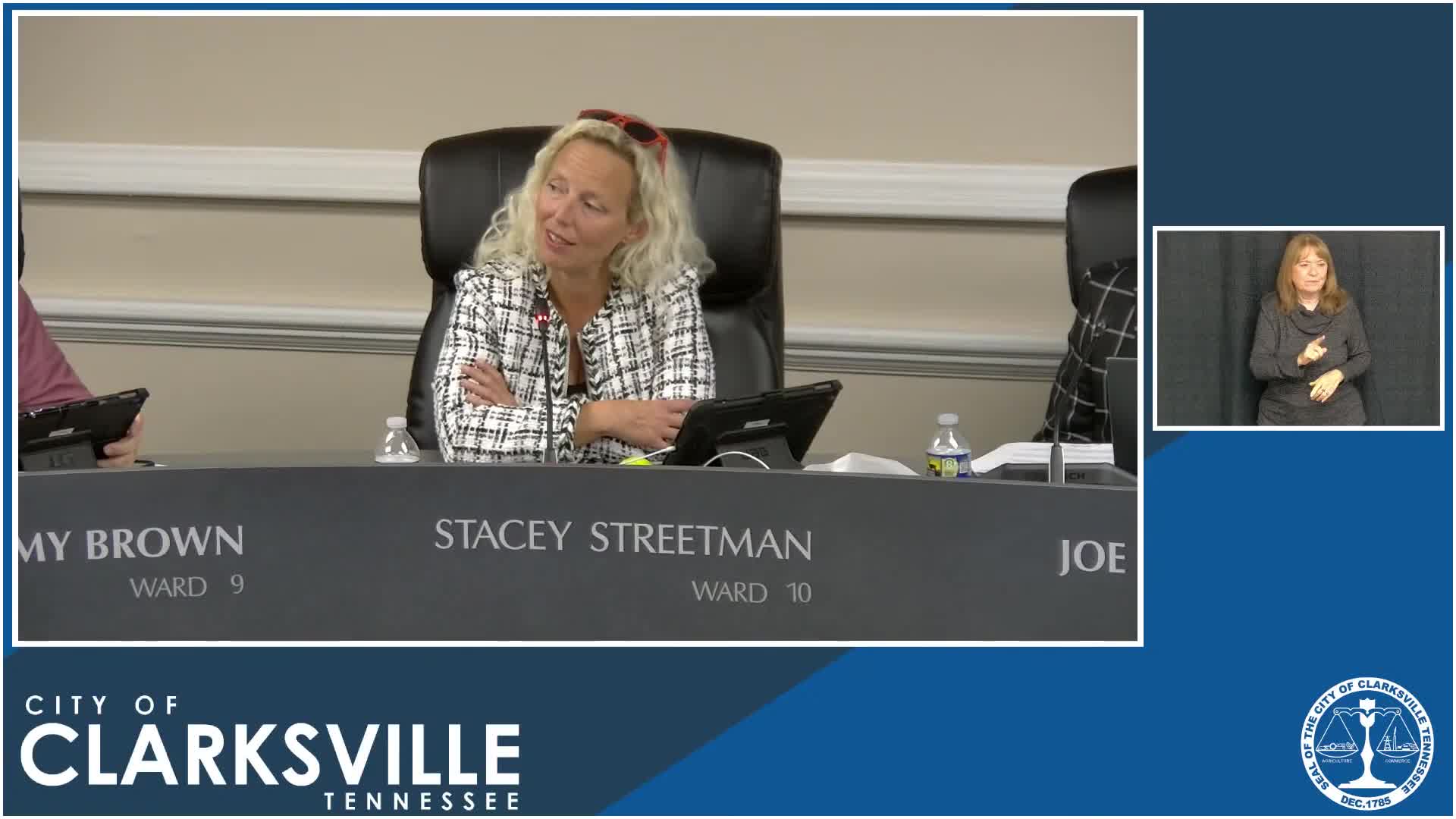Police describe grant-funded oral-fluid device to screen drivers for drugs; training and lab confirmation required
Get AI-powered insights, summaries, and transcripts
Subscribe
Summary
Police briefed the council on a grant-provided Sotox oral-fluid handheld system for presumptive drug screening in suspected impaired-driving and fatal-crash investigations.
The council heard a presentation from the Clarksville Police Department about a memorandum of understanding with the Tennessee Highway Safety Office and the Tennessee Bureau of Investigation to receive oral-fluid testing equipment for preliminary drug screening in suspected impaired driving cases.
Chief Burdine told the council the grant provides a Sotox oral-fluid mobile system (a handheld device that analyzes saliva cartridges) to participating agencies at no initial cost; the city will receive two devices and an initial supply of test cartridges. Use requires probable cause that a driver is impaired and officer training; only trained personnel will operate the device. Chief Burdine said the device screens for multiple drug classes (amphetamines, methamphetamine, opiates, oxycodone, cocaine, cannabis) and provides a presumptive result that should be validated by laboratory testing before being relied on as definitive evidence.
Chief Burdine explained the device functions like other field presumptive tests: it gives an initial indication to guide investigation and probable cause decisions, but evidence must be forwarded for laboratory confirmation. The department said the grant will cover training and that they expect to use the device primarily in major collisions, fatal-crash investigations and by specially trained investigators rather than for routine roadside use. Chief Burdine said the equipment selection process included other jurisdictions’ validation experiences and that a cited jurisdiction had a high correlation between initial presumptive device results and lab confirmation.
Council members asked several questions: how positive results intersect with valid prescriptions, how refusal would be handled, and whether use could prevent unnecessary arrests or help identify medical emergencies. The chief said a positive presumptive result would guide the investigation but that the statutory and procedural rules for arrest and evidence collection remain in place; a magistrate-ordered blood draw remains an option if a suspect refuses the oral-fluid test. The department emphasized training, limited deployment to trained investigators and grant funding for cartridge resupply to avoid a local cost burden.
The transcript records a presentation and committee recommendation in favor of the MOU; the council did not record a final roll-call vote in the provided text.
